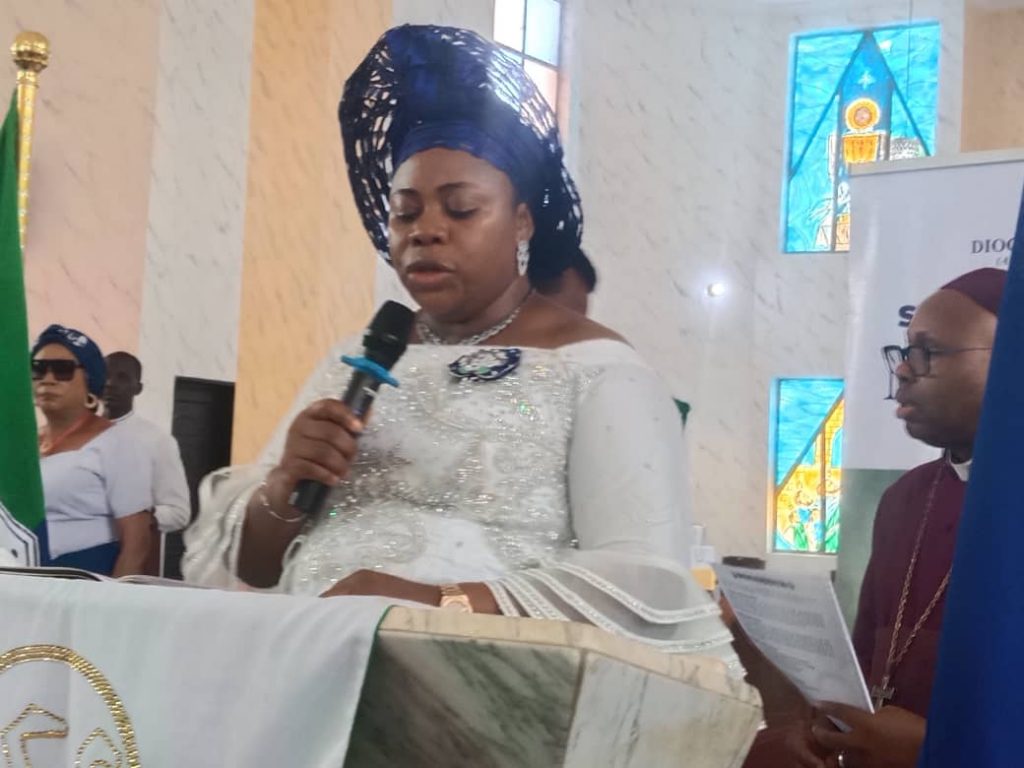The month of August can be correctly described as one of the most popular months of the year. If not for the phrase “august visitor” which is used for description of a distinguished or important visitor, it is for the popularity of “August meeting”, one of women’s biggest gatherings in South East Nigeria. This annual gathering over the years has become a very important platform for women’s contribution to social and community development.
Married women every August leave their bases in different parts of the world to return to their matrimonial communities to initiate and finance ideas that will bring development to their communities. These ideas could be infrastructural or policy changes. The meetings are held across different socio-cultural groupings and levels- either at church or family, kindred, quarterly and community level. It is not unusual to see different kinds of uniforms this season that adorn the waists of these women at different strategic junctions, event centers and churches across towns representing the different groups they belong to.
Historically, August Meeting could be traced to two significant developments of the colonial era. The first school of thought explained that married women, popularly called “Ndi Iyom Di” or “Otu Alutarunadi” depending on the part of Igbo land you are coming from, decided to pull resources together to develop their matrimonial communities. Thus, as rural communities in Igbo Land turned urban and family makeup started changing with migrations to urban communities; it became expedient that married women both at home and in the Diaspora meet at least once in a year to sustain the structure of their contributions to societal development. It must be headlined that women in typical Igbo society play vital roles in decision and policy making but, most importantly, in conflict resolution and infrastructural maintenance.
The second school of thought attributed the institutionalization of August Meeting to the Aba Women Riot of 1929. Described as one of Africa’s biggest civil revolts of the 20th century, the women protested and won against their exclusion from government by warrant chiefs, the introduction of new taxes by the colonial government and the declining prices of agricultural products following the Great.
Depression. The potency of this protest opened the eyes of the women to how powerful they can become in influencing public policy. Soon, the formation of “Home and Abroad” meetings which translated into August Meetings became a norm across communities. According to August Meeting historians, Mercy Anyaegbu and Nwamaka Iguh, August became the month of choice because of the predisposition of the month to school vacations.
As women, therefore, gather this month, once more, to initiate community and church development projects, resolve long-lasting conflicts, network and socialize, it is then instructive to highlight some strategic areas of focus.
First, women should see this season as a time for rigorous family re-orientation. Women must look back and inside into their various families. If we get it right at the family level, which is the smallest unit of the society and the first agent of socialization, then we will get it right in the society. With the increasing rate of social vices such as prostitution, armed robbery, kidnapping, thuggery, cyber and wire money fraud, and other forms of violent crimes, women must stand up as they used to and reclaim their society.
The distortion of family units with the rising cases of single parenting, divorce and separations in marriages should be critically looked into. Women must develop ways to protect the sanctity of the marital institution especially considering the role of women as home builders. There is need for women to play active roles in politics especially as the 2023 elections draw closer. Women must be sensitized to understand their important role in this election especially to come up with strategies to get more women elected into different political offices. Through the meeting, women must shift attention to girl child education as a means to empower more women to become intellectually independent and financially self reliant.
August meeting should be holistic in its engagement to prioritizing and addressing contemporary societal challenges and designing a united cause of action. The meeting should not be another gathering for talk shops.
Written by MARTHA IBEZIM









Comments are closed for this post.